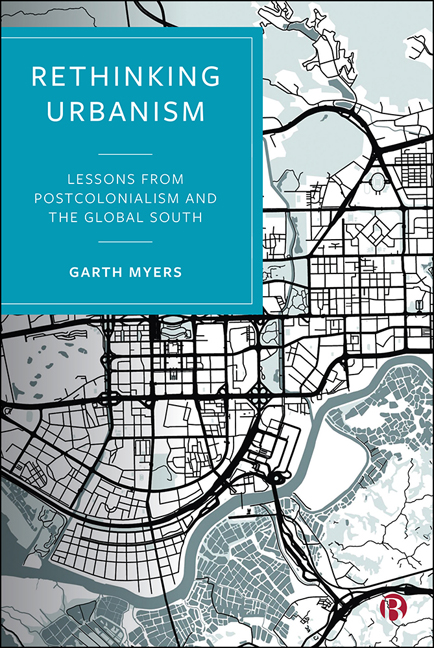Book contents
- Frontmatter
- Dedication
- Contents
- List of Figures
- List of Acronyms
- Glossary of Foreign Terms
- Acknowledgments
- Preface
- Introduction: Rethinking Urbanism from the South
- 1 Southern Processes of Planetary Urbanization in Hartford
- 2 Villages in the City: Patterns of Urbanization in the Pearl River Delta, Dakar, and Zanzibar
- 3 The Useful and Ornamental Landscapes of British (Post)colonialism
- 4 Submarine Urbanism: Cities People Make in ‘the Here and the Elsewhere’
- 5 ‘The Whole World Is Made in China’: Products and Infrastructures of Dis/connection
- 6 Urban Politics and Policy in a Southern Urban Planet
- Epilogue
- References
- Index
3 - The Useful and Ornamental Landscapes of British (Post)colonialism
Published online by Cambridge University Press: 03 March 2021
- Frontmatter
- Dedication
- Contents
- List of Figures
- List of Acronyms
- Glossary of Foreign Terms
- Acknowledgments
- Preface
- Introduction: Rethinking Urbanism from the South
- 1 Southern Processes of Planetary Urbanization in Hartford
- 2 Villages in the City: Patterns of Urbanization in the Pearl River Delta, Dakar, and Zanzibar
- 3 The Useful and Ornamental Landscapes of British (Post)colonialism
- 4 Submarine Urbanism: Cities People Make in ‘the Here and the Elsewhere’
- 5 ‘The Whole World Is Made in China’: Products and Infrastructures of Dis/connection
- 6 Urban Politics and Policy in a Southern Urban Planet
- Epilogue
- References
- Index
Summary
Introduction
In 1927 and 1949, botanist Robert Orchard Williams produced compilations on the plants of two island colonies of Britain. In The useful and ornamental plants of Trinidad & Tobago and The useful and ornamental plants of Zanzibar & Pemba, Williams provided brief entries on these colonies’ botanical wealth. These books were encyclopedic tomes whose intentions were scientific and somewhat innocuous. This chapter subjects the broader colonial context of urban landscapemaking around them to a critical reading. The concentration lies with the actual work of landscape-making in the colonial regimes from the 1920s through the 1950s, shaping nature in urban Trinidad and Zanzibar in the interest of British colonial rule.
British colonialism's urban parks and gardens in both settings are the focus. This includes the botanical gardens that Williams oversaw in both colonies, and the roles these played in using space to shape colonial society. The chapter then travels through alternative landscapes and urban environments produced by the colonized peoples in both places, including into the post-colonial era. As one looks at the relation of cities to one another in this era, one certainly sees the roles of colonialism in producing urban space and nature in its interests in many parts of the global South. A wide variety of colonialisms impacted the urban landscapes of the global South, including the ‘corporate colonialism’ of companies like United Fruit Company in the Caribbean and Central America (Martin 2018). Regardless of this variation, nearly everywhere one also sees that ordinary residents reframed and reconfigured these landscapes into something different. Where colonial mindsets endured into the post-colonial period, they nevertheless were refracted into different urban environmental politics and urban cultures of nature. In both settings, the postcolonial urbanism is ‘thoroughly hybrid, [and] thoroughly corrupted’, and postcolonialism can be both ‘an urban condition’ and a ‘deconstructive methodology’ (Roy 2011b: 308). The post-colonial stories of urban nature in Trinidad and Zanzibar offer another manifestation of the ‘heterogeneous conjunctive symbiosis’ discussed in the previous chapter for Southern urbanism in the 21st century: divergent urban contexts grow, together, into postcolonial landscapes where the ‘particular’ and the myriad variety of particularities appear (Glissant 2009).
- Type
- Chapter
- Information
- Rethinking UrbanismLessons from Postcolonialism and the Global South, pp. 77 - 104Publisher: Bristol University PressPrint publication year: 2020

